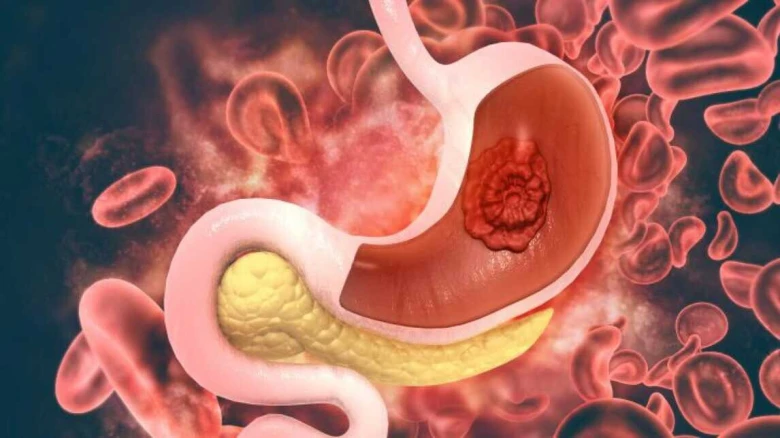Stomach cancer often presents itself with asymptomatic or nonspecific symptoms such as indigestion, heartburn...
Digital Desk: Stomach cancer poses a significant health threat in India, with varying incidence rates across different regions. Also known as gastric cancer, this malignancy originates from cell growth in the stomach, a vital organ responsible for digesting and breaking down meals. The stomach's susceptibility to cancer spans every area, commonly affecting the major portion referred to as the stomach body.
Primarily affecting older adults and slightly more prevalent in men, stomach cancer often presents itself with asymptomatic or nonspecific symptoms such as indigestion, heartburn, or general stomach discomfort.
Advanced stages may manifest as unintentional weight loss, persistent abdominal pain, nausea, vomiting, difficulty swallowing, blood in the stool, fatigue, and a sense of fullness or bloating after small meals. Dr. Manish Sharma emphasizes that symptoms may wait until the cancer is in its later stages, leading to extreme fatigue, spontaneous weight loss, vomiting blood, dark stools, and unique symptoms if the cancer metastasizes.
Various factors contribute to the development of stomach cancer, including Helicobacter pylori infection, dietary habits, alcohol and tobacco use, and genetic predispositions such as hereditary diffuse gastric cancer (HDGC). Helicobacter pylori infection stands out as a significant risk factor.
The prognosis of stomach cancer depends on factors like the stage at diagnosis, extent of spread, and overall health. Early-stage diagnoses generally offer a better prognosis. Treatment options include surgery, chemotherapy, targeted therapy, and radiation therapy based on cancer stages.
Prevention strategies play a crucial role in combating stomach cancer. Maintaining a healthy lifestyle, including weight management, avoiding tobacco and excessive alcohol, and following a balanced diet rich in fruits and vegetables, can contribute to prevention.
Additionally, treating H. pylori infection reduces the risk, and individuals with a family history or specific genetic conditions may benefit from regular screening for early detection.
Stomach cancer is a pressing health concern in India, with varying regional incidence rates. Awareness of symptoms, risk factors, and preventive measures is crucial for early detection and effective management. A combination of a healthy lifestyle, targeted treatments, and regular screenings can significantly contribute to reducing the burden of stomach cancer in the country.

Leave A Comment